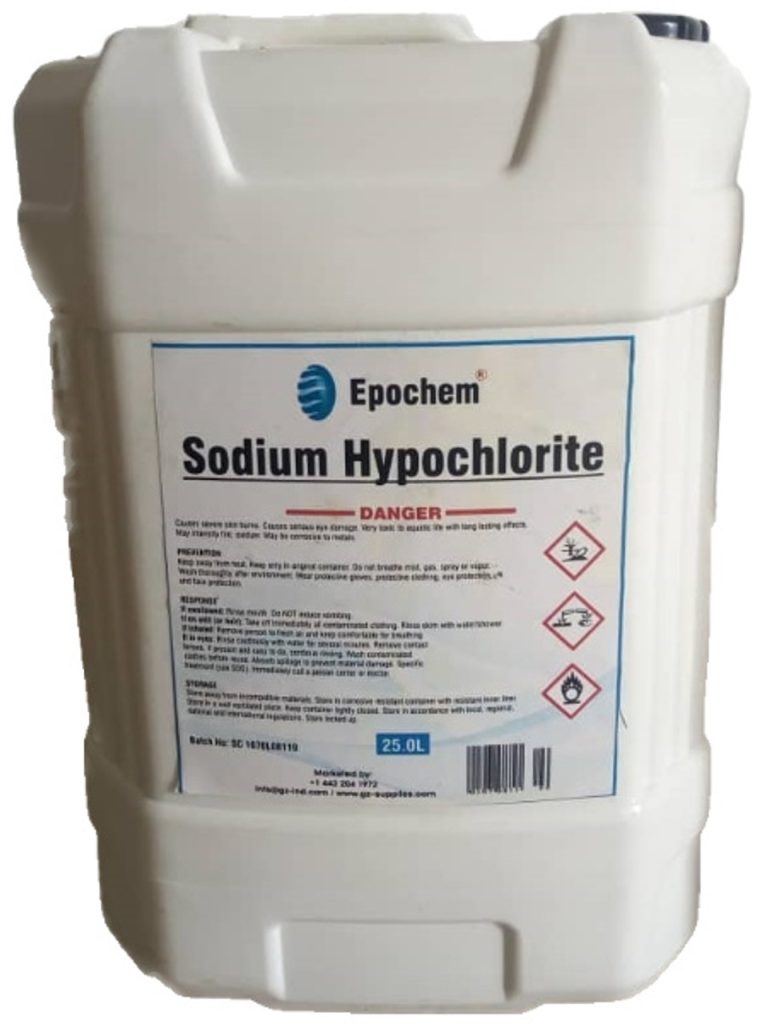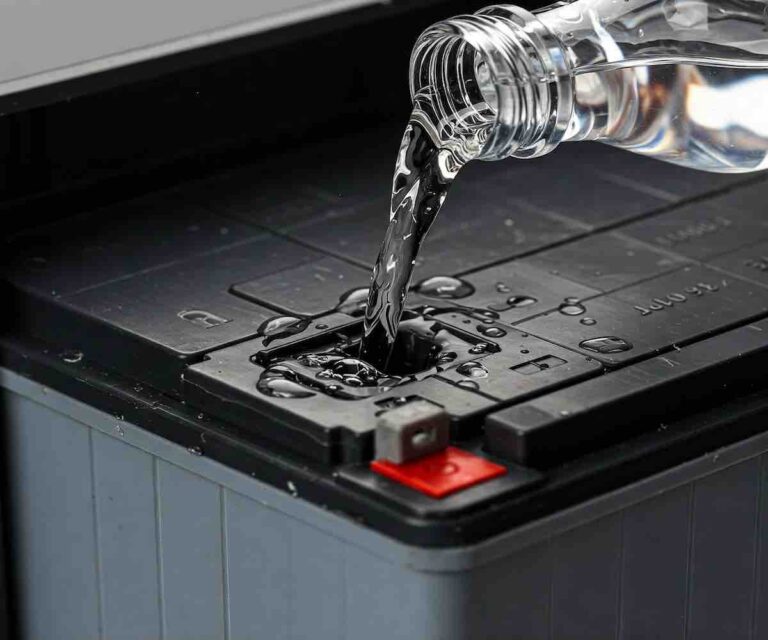Sodium Hypochlorite in Food Industry: Ensuring Safety and Hygiene
Sodium hypochlorite plays a crucial role in ensuring food safety by effectively combating harmful bacteria, viruses, and other pathogens that can cause foodborne illnesses. Its importance lies in its ability to disinfect surfaces, equipment, and food products, reducing the risk of contamination and safeguarding consumers’ health. By neutralizing these harmful microorganisms, sodium hypochlorite helps prevent the spread of diseases and maintains the quality and integrity of food products throughout the production, processing, and distribution stages. This chemical compound acts as a reliable ally in the food industry’s ongoing efforts to provide safe, wholesome, and hygienic products to consumers.
In the intricate world of the food industry, the quest for safety and hygiene stands as a constant pursuit. The delicate balance between providing consumers with nourishment and safeguarding their health demands meticulous attention to detail at every step of the supply chain.Sodium hypochlorite emerges as a powerful ally—a reliable guardian that upholds the principles of safety and hygiene.
This guide embarks on a journey through the vital role of bleach in the food industry, unveiling its mechanisms, applications, and the strategic interplay between its disinfection prowess and the quest for untainted, consumable products. As we navigate through the realms of chemical compounds, microbial adversaries, and regulatory frameworks, we uncover how sodium hypochlorite ensures food safety and hygiene, contributing to a healthier and more secure culinary landscape.

Sodium Hypochlorite: An Effective Food Industry Disinfectant
1. Understanding Sodium Hypochlorite’s Disinfection Mechanism:
Sodium hypochlorite operates as an efficient disinfectant by capitalizing on its ability to produce hypochlorous acid (HOCl) when it interacts with water. Hypochlorous acid, a potent antimicrobial agent, exerts its effects by penetrating the cell walls of microorganisms. Once inside, it disrupts essential enzymatic processes, leading to the destruction of vital cellular components. This disruption weakens the microorganisms’ defenses and metabolic functions, rendering them incapable of causing harm or reproducing. Sodium hypochlorite, through the generation of hypochlorous acid, acts as a molecular-level assailant against a range of pathogens, ensuring comprehensive disinfection.
2. Comparative Strengths of Sodium Hypochlorite in Disinfection:
In the arsenal of food industry disinfection methods, this bleach stands out for its broad-spectrum efficacy. Unlike single-target methods, such as heat treatment, sodium hypochlorite’s action is not constrained by specific microorganisms. Its versatility enables it to combat an array of pathogens, including bacteria, viruses, and fungi, thereby providing a comprehensive defense against the diverse microbial threats encountered in food processing and preparation environments. Additionally, its relatively straightforward application and rapid action contribute to its prominence as a preferred disinfection choice.
3. Unveiling the Advantages of Broad-Spectrum Effectiveness:
The capability of this bleach to tackle a wide spectrum of microorganisms is a substantial advantage in the context of food safety. The food industry is characterized by multifarious microbial challenges, and a disinfectant that addresses numerous types of pathogens underlines its significance. From common bacteria to emerging viral strains, This bleach broad-spectrum action ensures that the full gamut of potential threats is neutralized. This all-encompassing defense translates to heightened assurance in maintaining food safety standards.
Applications of Sodium Hypochlorite in the Food Industry
1. Elevating Surface and Equipment Hygiene:
Within food processing facilities, surfaces and equipment surfaces serve as potential breeding grounds for microbial contamination. Sodium hypochlorite’s application in this domain is transformative. It facilitates thorough disinfection, eradicating microbes that might otherwise persist on food contact surfaces. By mitigating the microbial load on these surfaces, sodium hypochlorite contributes significantly to preventing cross-contamination and maintaining hygienic conditions throughout the food processing journey.
2. Enhancing Fresh Produce Safety:
Fruits and vegetables, essential components of our diets, are subject to a multitude of contaminants. Sodium hypochlorite plays a pivotal role in enhancing their safety. By incorporating this disinfectant in the washing process, it effectively reduces the microbial burden carried by produce. The chemical’s antimicrobial action assists in removing soil, pesticides, and potential pathogens, culminating in a safer, cleaner product for consumption.
3. Fortifying Food Contact Surface Sanitation:
In a culinary environment, surfaces that directly contact food demand heightened attention. Sodium hypochlorite’s role extends to sanitizing these surfaces, preventing the transference of harmful microorganisms to food items. By ensuring that cutting boards, utensils, and equipment are sanitized with the chemical and the risk of contamination is significantly reduced, reinforcing the integrity of the final product.
Best Practices for Sodium Hypochlorite Handling and Application
1. Secure Storage and Precise Handling:
Sodium hypochlorite’s efficacy is tightly linked to its integrity. Proper storage—away from direct sunlight and extreme temperatures—is crucial in maintaining its potency. Handling, whether in concentrated form or when diluted, demands attention to detail. It necessitates using appropriate containers to prevent deterioration and minimize the risk of leaks or spills that could lead to contamination or injury.
2. Safeguarding with Personal Protective Equipment (PPE):
Those who handle this chemical directly must prioritize personal safety. This involves wearing designated personal protective equipment (PPE), such as gloves, goggles, and aprons. PPE acts as a barrier, protecting workers from potential skin or eye contact and inhalation of fumes. Proper training in PPE usage is crucial to ensure that protective measures are effective.
3. Mastering Effective Application Techniques:
Applying sodium hypochlorite effectively while preserving food quality requires skillful techniques. Factors like proper dilution, appropriate contact time, and rinsing procedures play a pivotal role. Overcoming challenges like chlorine odor or taste requires careful application and knowledge of chemical interactions. By mastering these techniques, food businesses can reap the benefits of sodium hypochlorite’s disinfection prowess without compromising the sensory attributes of their products.
Related Articles
Sodium Hypochlorite in Water Treatment: A Powerful Solution for Safe and Clean Water
Safe Handling of Sodium Hypochlorite: Dos and Don’ts
Conclusion
In this article we have highlighted the significant importance of Sodium Hypochlorite in the food industry. It is effectively used in disinfecting surfaces, equipment and the environment making it fit for food processing. Contact us for the availability of sodium hypochlorite within your location.


